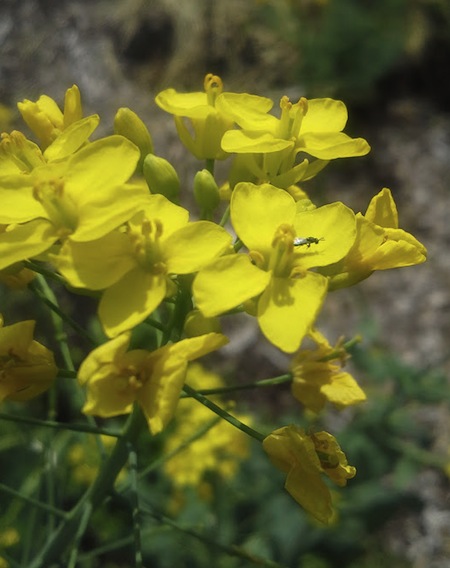The Friday before last, I decided to finally take action about the mass of not-collards that are happily growing in the garden, and which are really too much for us to eat- even with large amounts of freezing and sharing. What I decided to do was pull out the four plants on the outer edge of the plot. This would leave another four plants, which I figured would still give us more than enough vegetabley goodness from our remaining mystery plants.
Because I was so eager to get started, I didn’t remember to take a “before” photo- though I did photograph “partway through.” I started by cutting off the leaves and bagging them.
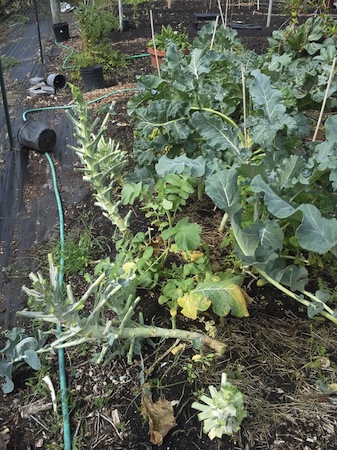
As the bags of leaves piled up, I realized that these back four plants were the most luxuriant of the bunch. They’re the southernmost plants in our plot, so are intercepting a lot of low-angle winter sun. This has probably inhibited the growth of the inner plants, as well as the carrots and such in the interior part of this section. They’ve also been acting as a windbreak because of their density, and it would turn out that this was a bad day to remove them…
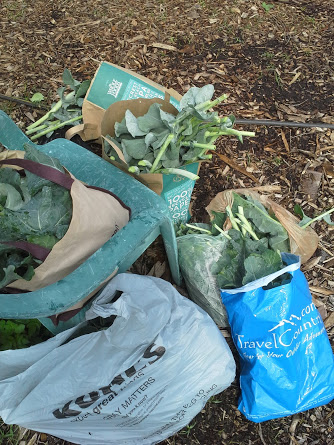
I ended up with six big paper grocery bags full of leaves, plus four or so plastic bags. A huge amount! Luckily some of the volunteers from the campus Wellness Center were there and offered to take some of the bags to the food pantry on campus. Several of the rest of the bags went to friends, and the remainder came home to be blanched and frozen.
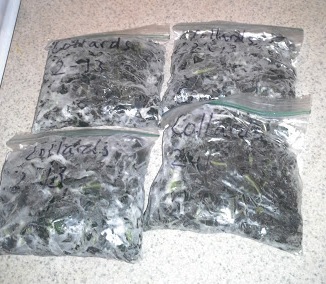
So all seemed well in the garden after Friday’s work. There was definitely a different feel in the plot without the wall of greens at the end.
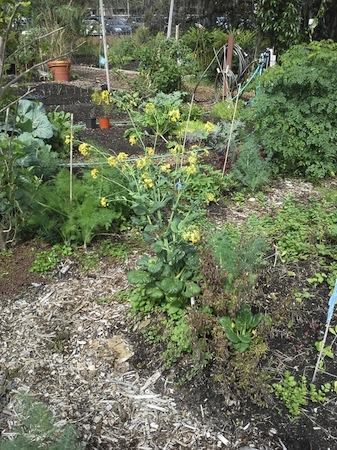
I noticed that the radicchio was starting to develop the characteristic thick, red, veiny leaves- it’s interesting to watch the dainty green first leaves change like this.
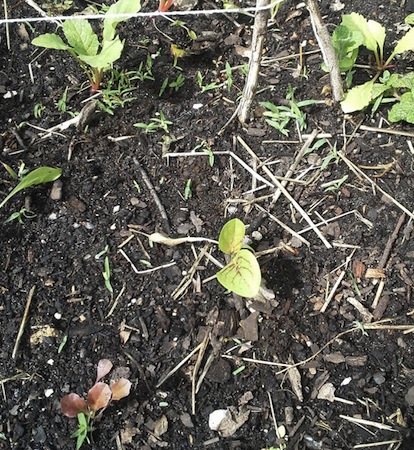
So on Sunday afternoon, we returned from an overnight trip to Tampa, and saw the ominous weather forecast: it would get down to near freezing on both Sunday and Monday nights. We decided to go to the garden and put hay around the fragile seedlings, in hopes of at least protecting them from the wind. This is where the lack of not-collard windbreak came into play. It definitely got down to freezing- or at least close enough to it to kill or damage a bunch of our plants when the windchill factor was added in.
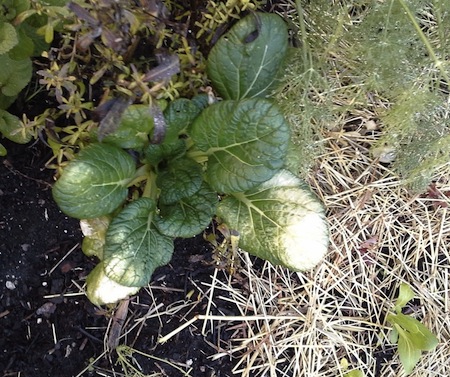
On Tuesday, it was a bummer to visit the garden and see the damage- though we had enough cool-weather plants to avoid some of the damage that other gardeners apparently had. Our tomatoes (which had survived the last freeze inside the sheltering not-collards), bell peppers, and the unidentified giant mint-family plant were probably killed. The nasturtium seedlings completely dessicated (with the exception of the lone seedling planted under another plant), and many of the beet and pak choi seedlings died. The misome and lemon verbena had some damage. But many of the plants were actually fine: mint (of course), carrots, dill, cilantro, Italian parsley, turnips, not-collards, fennel, lavender, and most of the radish, lettuce, radicchio, arugula, and misome seedlings.
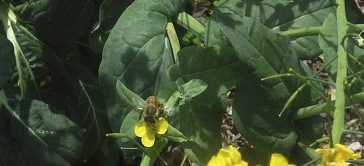
I suppose as far as frost experiences go, this was pretty mild. Part of the issue is that it’s been unseasonably warm in general this winter, so we were lulled into a sense that the frost danger was over. Obviously it wasn’t. It was still a bit sad to see those dead and dying plants (and no doubt worse for the people with large tomato bushes and strong-looking bean seedlings that were hammered).
At any rate, the next thing to do is get some more seedlings started. I actually have some sprouting tomatillos and molokhia (a North African green we’re trying out), but after this experience I want to hold off on planting those out in the elements. So I’ll wait a few weeks to see how the weather is shaping up for those. I’ve also started some new shiso, nasturtium, and beet seeds on our patio. I did take the chance and plant radishes in the ground directly, since those seem pretty hardy.
So this is a bit of a setback- we were especially looking forward to beets- but not a huge one. The frost danger should be over in the next few weeks, and we’ll be able to be more adventurous with the plantings.
